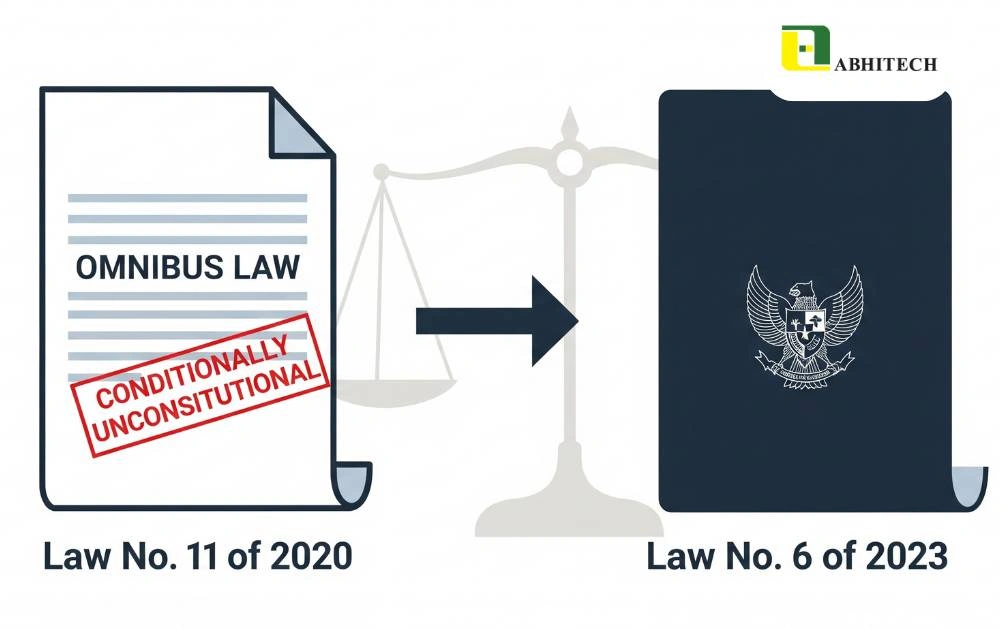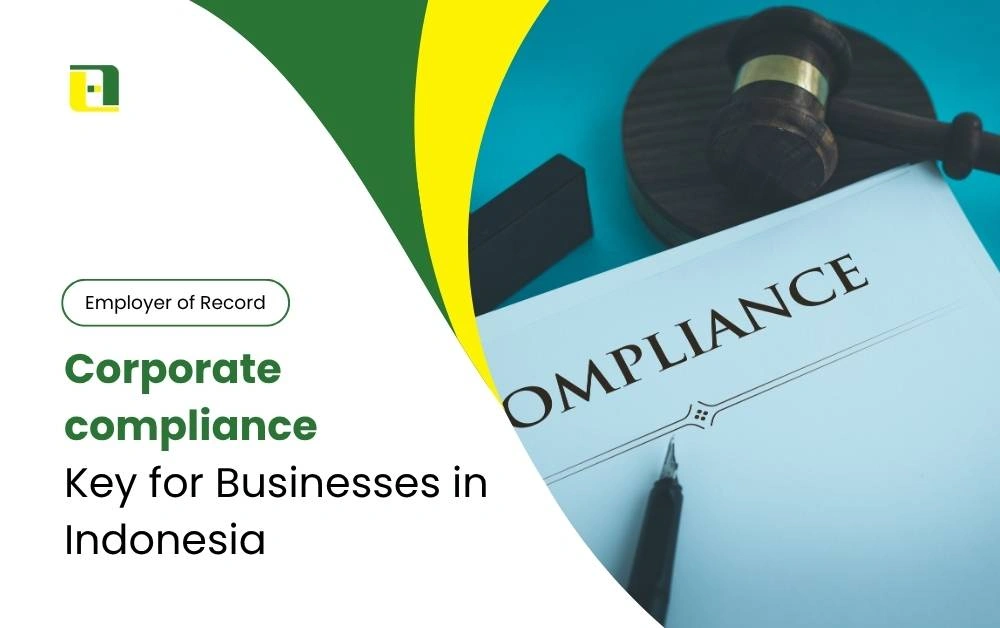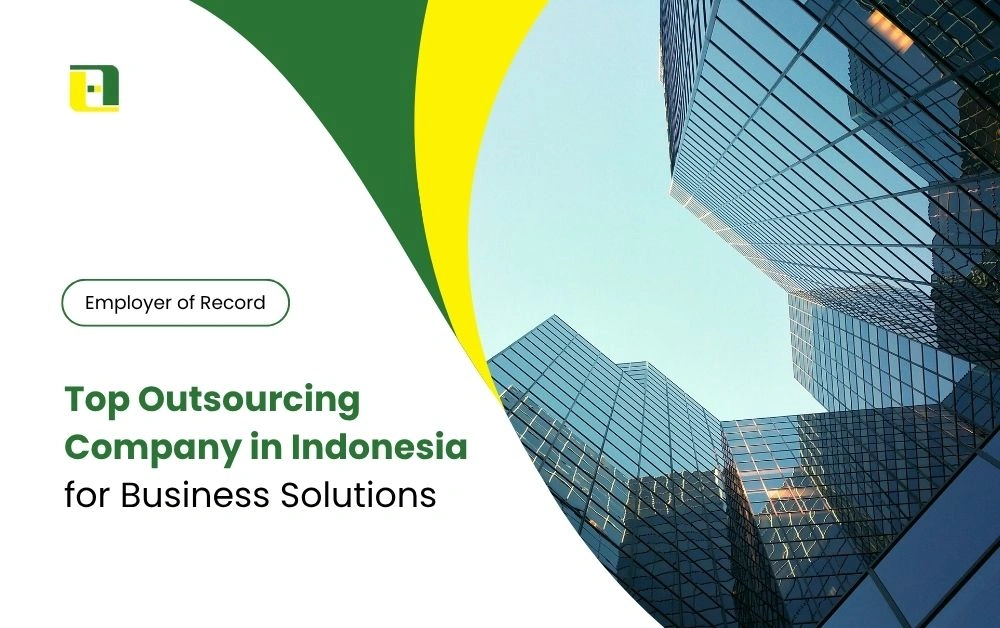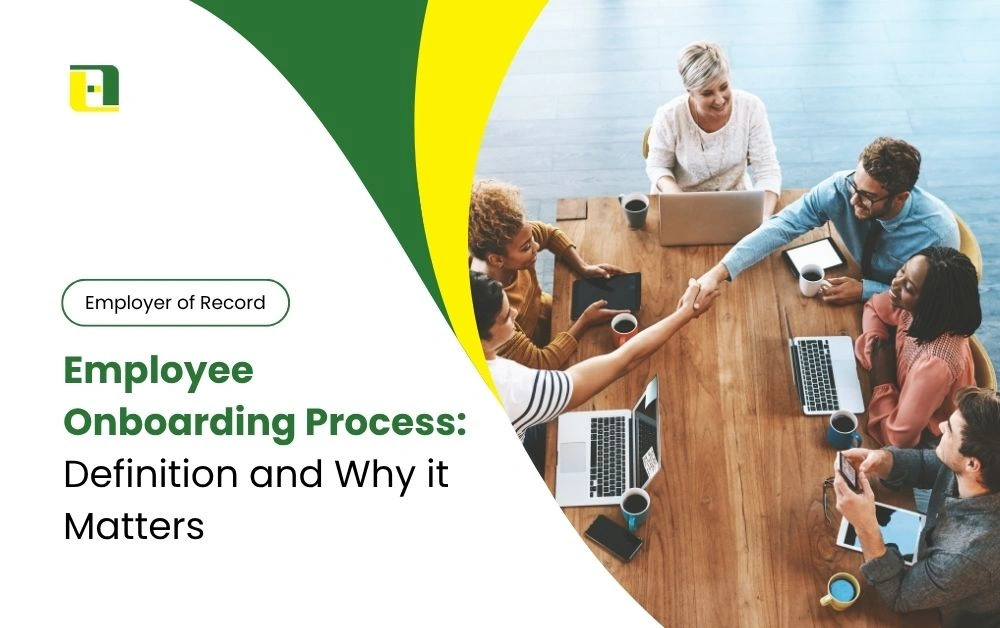Nearly five years since its introduction, Indonesia’s Omnibus Law (UU Cipta Kerja) has fundamentally reshaped the country’s investment and labor landscape.
For foreign businesses, the goal was simplification, but the reality is a new set of rules, opportunities, and lingering complexities. Navigating this post-reform environment requires a clear understanding of what has changed and the most strategic way to operate.
What is the Omnibus Law in Indonesia?
The Job Creation Law, also known as UU Cipta Kerja in Indonesia, is a comprehensive bill enacted to simplify the process of obtaining foreign investment and business permits, to increase job opportunities for Indonesian workers, and ultimately to enhance Indonesia’s economy.
The term “omnibus” itself represents “many” or “for all”, meaning it is created to govern and amend dozens of overlapping regulations and bureaucracy that hinder the growth of investment.
The regulation thus provides significant benefits and impacts for foreign investors, making it easier for them to obtain business licenses. On a further note, it may open up new opportunities that were previously restricted to foreign businesses.
The Evolution of the Law: From 2020 to 2023

To understand the current state of the Omnibus Law Indonesia, it’s crucial to know its history. The original Law No. 11 of 2020 faced a legal challenge and was declared “conditionally unconstitutional” by the Constitutional Court.
In response, the government issued a new regulation, which was later ratified into Law No. 6 of 2023. This is the definitive, currently applicable version of the Job Creation Law that governs businesses today.
Key Reforms & Lingering Complexities for Foreign Investors
While the law aimed to simplify, foreign businesses still face a complex reality. Here are the key areas of reform and the challenges that remain:
1. Foreign Investment Liberalization (The “Positive Investment List”)
- The Reform
The law significantly opened many business sectors to 100% foreign ownership, replacing the old, more restrictive Negative Investment List. - The Lingering Complexity
It’s not a complete free-for-all. To get tax incentives, “Priority Sectors” must meet specific criteria. Other sectors require mandatory partnerships with local SMEs. Navigating these conditions still requires deep local knowledge.
2. Simplified Business Licensing via the OSS System
- The Reform
The Online Single Submission (OSS) system was introduced to centralize and theoretically streamline the process for obtaining a Business Identification Number (NIB). - The Lingering Complexity
For businesses deemed “high-risk,” the OSS system is merely the first step. Securing the necessary follow-up certifications and permits remains a detailed, often bureaucratic process.
3. Labor Law Adjustments
- The Reform
The UU Cipta Kerja introduced more flexibility in fixed-term employment contracts (PKWT), modified severance pay calculations, and clarified outsourcing rules. - The Lingering Complexity
Indonesian labor law remains heavily protective of employees. Termination procedures are still fraught with legal risk if not handled perfectly. Calculating wages and benefits by the latest regional minimum salary (UMK) and statutory requirements presents a constant compliance challenge.
The Omnibus Law: 5 Years Later The Reality on the Ground
Five years on, the practical impact is clearer. While the law has undeniably made Indonesia more attractive on paper, foreign investors often find that the most significant challenges have shifted from “prohibition” to “procedural complexity.”
The need for expert, on-the-ground guidance to navigate inconsistent regional implementation and bureaucratic hurdles has become more critical than ever.
The most successful new entrants are those who adopt agile operational models to leverage the law’s flexibility without getting entangled in its administrative burdens.
How an EOR Solves Post-Omnibus Law Challenges
An Employer of Record (EOR) model directly addresses the primary challenges that foreign businesses face in the post-Omnibus Law era.
- Challenge: Complex & Risky Labor Law Compliance.
Abhitech’s EOR service acts as the legal employer, ensuring every contract, salary calculation, and termination process is 100% compliant with Law No. 6 of 2023. This shields you from legal disputes. - Challenge: Bureaucracy of Entity Setup & Licensing.
An EOR allows you to bypass the PT PMA setup process completely. You can start hiring legally in days, with zero need to navigate the OSS system or meet substantial minimum capital requirements. - Challenge: Staying Updated with Evolving Regulations.
Our in-house legal and HR teams constantly monitor Indonesia’s regulatory changes. We ensure your operations remain compliant, protecting you from future legal surprises without requiring you to conduct the research.
Learn more: Employer of Record (EOR): The Ultimate Guide for Foreign Companies
How to Navigate the Changes with Abhitech’s EOR Services
Since its issuance and enactment in November 2020, the Omnibus Law has presented interesting opportunities for foreign companies to invest in Indonesia. The impacts are significant, and businesses need to develop robust strategies to operate under the new laws.
Don’t let regulatory complexity slow down your growth. Abhitech Employer of Record (EOR) service is the definitive solution for foreign companies looking to hire in Indonesia quickly, flexibly, and with zero compliance headaches.
We handle the bureaucracy so you can focus on your business. Contact us today to learn how we can be your strategic partner in navigating the Indonesian market, or visit our Abhitech blog for more expert analysis.










